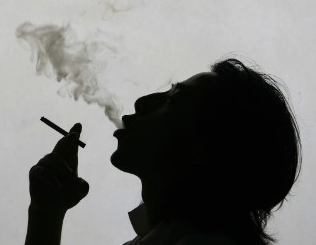There are a number of possible causes of bad breath (halitosis).
Poor oral hygiene

- The most common cause of bad breath is poor oral hygiene. Bacteria that build up on your teeth, particularly between them, as well as your tongue and gums, can produce unpleasant-smelling gases. These bacteria are also responsible for gum disease (Periodontal disease) and tooth decay.
- If you don’t floss and brush your teeth regularly, any food trapped between your teeth will be broken down by the bacteria and may be responsible for bad breath.
- Bacteria can also live on the rough surface of your tongue. As well as brushing your teeth, cleaning your tongue can also help control bad breath.
- You should have regular dental check-ups to ensure any oral hygiene problems are picked up and treated early.
Food and drink
 Eating strongly flavoured foods, such as garlic, onions and spices, is likely to make your breath smell. Strong-smelling drinks, such as coffee and alcohol, can also cause bad breath.
Eating strongly flavoured foods, such as garlic, onions and spices, is likely to make your breath smell. Strong-smelling drinks, such as coffee and alcohol, can also cause bad breath.- Bad breath caused by food and drink is usually temporary. It can be avoided by not eating or drinking these types of food and drink too often. Good dental hygiene will also help.
Smoking
 Smoking is another cause of bad breath. As well as making your breath smell, smoking stains your teeth, irritates your gums, and reduces your sense of taste.
Smoking is another cause of bad breath. As well as making your breath smell, smoking stains your teeth, irritates your gums, and reduces your sense of taste.- It can also significantly affect the development of gum disease, another major cause of bad breath. Stopping smoking will lower your risk of gum disease and help prevent bad breath.
Crash dieting
- Crash dieting, fasting, and low-carbohydrate diets are another possible cause of bad breath. They cause the body to break down fat, which produces chemicals called ketones that can be smelled on your breath.
Medication

- Some types of medication can also cause bad breath. These include:
- Nitrates – these are sometimes used to treat angina.
- Some chemotherapy medication
- Tranquillisers (phenothiazines)
If the medication you’re taking is causing bad breath, your doctor may be able to recommend an alternative.
Medical conditions
- In rare cases, bad breath can be caused by certain medical conditions. In dry mouth (xerostomia), the flow and composition of saliva may be affected.
- A lack of saliva can cause more bacteria than normal to build up in your mouth, as well as a change in the types of bacteria. A build-up of these in the mouth may lead to bad breath.
- Dry mouth can sometimes be caused by a problem in the salivary glands or by breathing through your mouth instead of your nose.
- In some cases, gastrointestinal conditions can also cause bad breath. For example, a bacterial infection of the stomach lining and small intestine (H. pylori infection) and gastro-oesophageal reflux disease (GORD) have been linked to bad breath.
- If a gastrointestinal condition is thought to be causing your bad breath, you may need to have an endoscopy. This is a procedure where a piece of equipment called an endoscope is used to examine an area inside the body, such as your airways or abdomen.
- Other medical conditions that can cause bad breath include diabetes and lung, throat, or nose infections – for example, bronchiectasis, bronchitis, tonsillitis, and sinusitis.
Halitophobia
- Some people are convinced they have bad breath when they don’t. This psychological condition is called halitophobia.
- People with halitophobia are paranoid about the smell of their breath. They often misinterpret other people’s behaviour and comments, thinking they’re suggesting they have bad breath. They become fixated with cleaning their teeth, chewing gum, and using mouth fresheners.
- Treatment for halitophobia involves talking therapies, such as cognitive behavioural therapy (CBT), to help the person overcome their paranoia and fixation on the smell of their breath.
